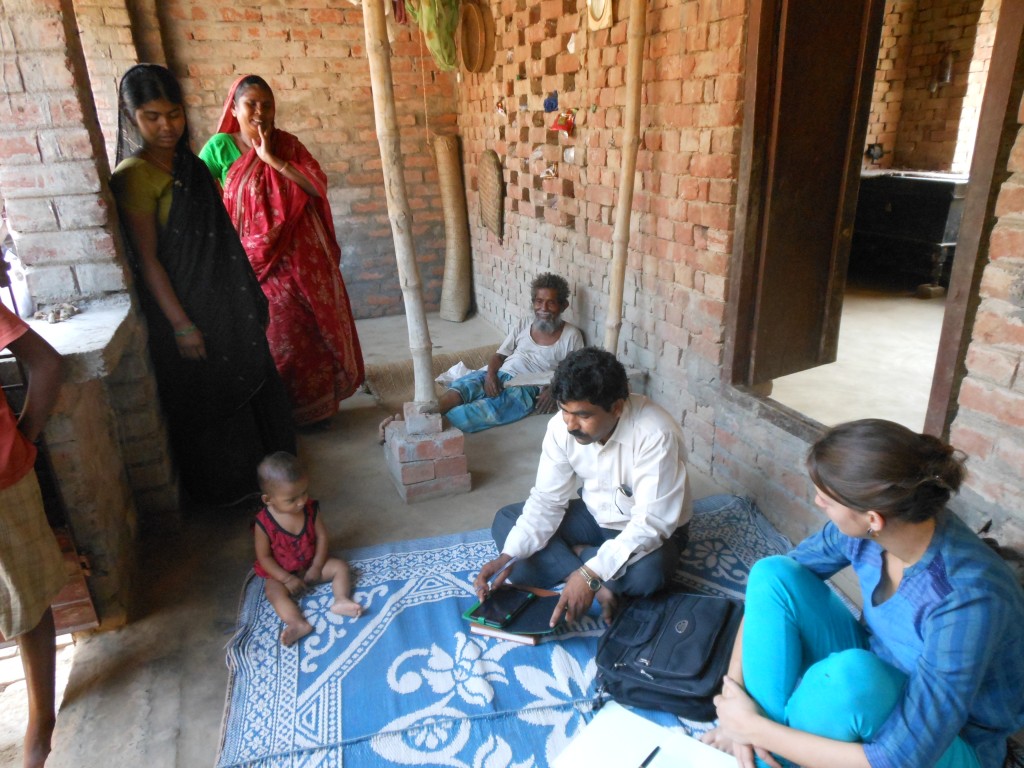Caroline Delaire is conducting a household survey in arsenic-affected Murshidabad district, West Bengal, India, in order to quantify and better understand the adoption of alternatives to contaminated groundwater. These alternatives include domestic filters, purchased water, government tubewells and in some cases government piped water. The survey is designed to evaluate the multiple degrees of alternative uptake, as well as people’s perceptions of water issues. Caroline hired and trained 4 local surveyors (who only speak a few words of English) to conduct the tablet-based survey. After 2 months of field work and 500 households surveyed, Caroline and her team are wrapping up data collection this week. This social science project is a collaboration between Pr. Isha Ray from the Energy and Resources Group (UC Berkeley), Pr. Joyashree Roy and Dr. Abhijit Das from the Global Change Program (Jadavpur University, Kolkata) and the Gadgil Lab.
